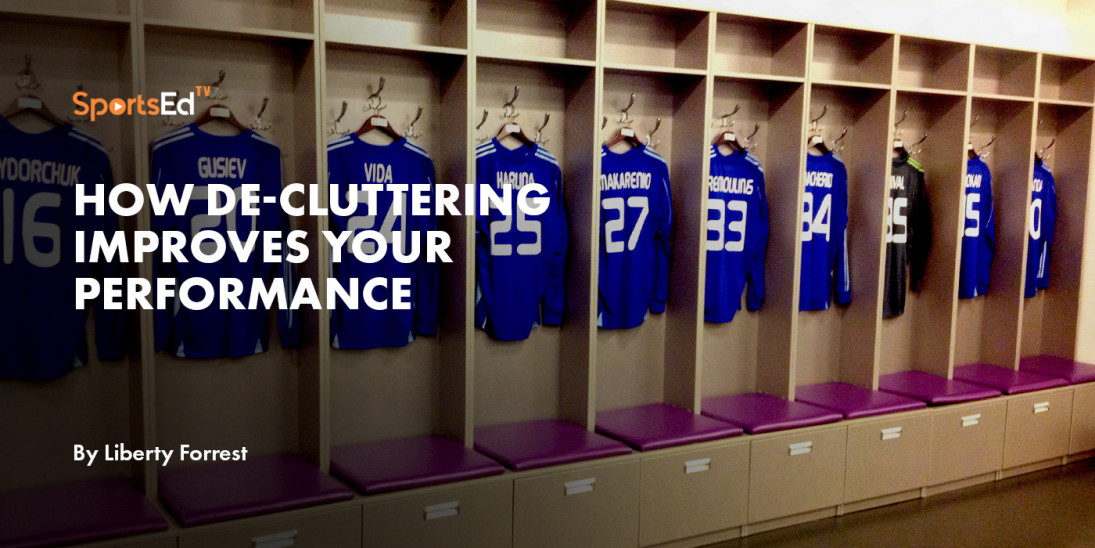Mental Health
Welcome and thanks for visiting...

To Believe, or Not to Believe. That is the Question.

What do you believe? Yeah, I know, that’s a huge question because I didn't ask what you believe about a particular topic.
What do you believe in general? About anything? Everything? What have you been taught throughout your life? About yourself? About what you can expect out of life? About how other people see you, what they expect from you, about your place in the world...
Yup. Still a big question. But well worth considering. You might have some ideas about that as they pertain to your coach or trainer or team members or performance or athletic potential. Those are important and worth considering because you might discover beliefs you didn’t know you had. And let’s go deeper, too.
Okay, here's another one, maybe not quite so broad. Is there anything you'd like to change about yourself or your life? Yeah, I know, the answers to that could be Big Things and they might still be quite broad and general (e.g., "I want to be happy"). But at least a big answer is still an answer, and it gives you a starting point if you want to move forward in your life.
Is there any area of your life or yourself that feels negative in some way? For example, the way you feel about yourself. Are you beating yourself up about your performances? Have you been slacking on training, or busting your backside but not seeing the results you want and you’re berating yourself for it? Are you one of those people who speaks in a self-deprecating way? Do you think you're “not as good as others,” or do you think people won't like you, or you wonder why they do like you?
Or are you doing things you don't want to be doing but feel like you have no choice because it's just what you've always done or what you think you're supposed to do or what people expect of you?
Basically, are there areas of your life that don't make you happy or that don't work for you in some way?
If the answer to that is “Yes,” then let me ask you this: Do you want to change any of it? If the answer is “Yes” again, start by looking at what you believe about the current situation. I would suggest you write it down. There's a lot of power in seeing the words in front of you, rather than just thinking them in your head. Trust me. This is a really, really important step.
Now look at your beliefs. Where did they come from? Did they come from your parents, or others who taught you to have those beliefs? Did they come from some experience(s) in your life? And most importantly, is there any evidence to support your beliefs?
It is true that much of what we believe comes from childhood, from what we were taught by parents, teachers, other people, or life experience. We go out into the world and act on those beliefs whether they are rooted in truth or based in fact – or not. We don't usually stop to question them. We just keep putting one foot in front of the other, making choices based on our beliefs. If we think of them at all, we think of them as fact. And we validate those beliefs by continually putting ourselves in positions that match them.
A belief is not a fact. It is merely an opinion that is held to be true, and that’s something else entirely. Opinions and ideas are not facts.
For example, if you're raised in an abusive and oppressive environment, you grow up thinking this is normal. You don't even know it's abusive – it’s just the way life is. You believe it's supposed to be like that. So, you will surround yourself with people and situations that validate those beliefs.
If you grew up in a home where there was respect and kindness, and where there was nothing that looks like abuse, you’ll believe that's how life should be, and how people should treat each other. That will be normal for you, and you will gravitate toward similar situations.
Your experiences shape your beliefs. Your beliefs shape your thoughts. Your thoughts shape your choices. And your choices shape your life.
To change your life, you must begin by acknowledging the beliefs that led to where you are now. And if that’s something you’d like to change, you are always free to change the beliefs that brought you here.
"The sky is blue, the grass is green", those are facts and cannot be changed. "Everyone is insulted or hit, and that's normal" – that is a belief. And it can most definitely be changed.
Look at the aspects of your life you want to change. Perhaps you’re beating yourself up about your performance or there’s a quiet little voice inside that taunts you and says you’ll never reach your goals. Pick apart your beliefs about whatever it is you’d like to change. Ascertain which beliefs are rooted in facts and which ones are based on your opinions, or the opinions of others. If you hold self-destructive beliefs – that is, any beliefs that harm you or cause you pain or distress, whatever their source – you're free to change them.
If you think you have plenty of evidence to support the validity of self-destructive beliefs (e.g., "I'm a failure. I can't do anything right"), I would challenge you to look for evidence to the contrary and I'm sure you'll find plenty. You'll find many ways in which you've been successful, and areas of your life in which you've done wonderful things for yourself or others.
Even if you have failed at something in your life, this does not mean you are "a failure." Your behaviours and experiences are not you. Negative self-talk is based on a subjective opinion that came from you or others. Just because someone else says you are worthless or you're stupid or you’ll never hit those goals, win the race, or take the trophy, it does not mean it is a fact.

And I can promise you, you do not deserve to be insulted. Everyone makes mistakes. We are all doing our best. We are human; we get it wrong sometimes. We have our high-performance days and the ones in which we’d get thrashed by a three-year-old. But there is a perfect Spirit inside you, flawless and beautiful. You should not be dwelling on – or believing – the hurtful words of someone who insults you, no matter what that person's role is in your life.
You know that deliciously wonderful feeling of having de-cluttered your home? You know, going through the closets, the drawers, the shelves, cleaning out stuff, getting rid of junk, bits that are falling apart, you lost half of that, these don't work anymore, are taking up space, you don't need them and forgot you had them etc.?
Rummage around in your brain. Go through its closets and drawers and shelves. Haul out the beliefs that you'll find stashed away. Clear them out, get rid of the junk, the old stuff that doesn't work or you don't need. You'll find plenty of beliefs that are oppressive, stifling, inaccurate, just plain false, and that don't serve any purpose except to cause you harm, to hold you back, and to prevent your happiness.
You're free to chuck them. You get to keep the ones you like, the ones that make you happy and that allow you forward movement in your life. And you're allowed to create a bunch of new ones that will add to that. But you don't have to keep the ones that are giving you grief.
They're only thoughts in your head. That means you have complete control over them. Keep them; chuck them. It's up to you. But just bear in mind that the ones you keep are the ones that form the basis for your thoughts, and therefore your choices in life. What you believe becomes how you live.
Remember this: Unless and until you change your beliefs, you will continue to surround yourself with situations that validate them – no matter how harmful they are to you, no matter how unhappy they make you.
Choose your beliefs wisely.





